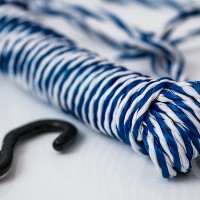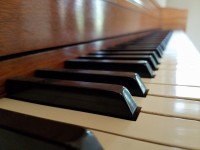A piano is a beautiful musical instrument that gives you and your family a world of enjoyment. If you have it in your house, it is a real treat. However, a piano is also a tender “creature” that needs a great deal of care on your part. It is not enough just to buy it, place it somewhere against a wall in one of your rooms, and exploit it to the full. You need to protect it and have it tuned by a professional piano tuner regularly if you want it to last for many years. Here are some important tips on keeping your piano in good shape.
1. Keep humidity in the room with your piano under control
One of the worst threats to your piano’s health are constant changes in humidity in the room where you have placed the instrument. A high level of humidity may lead to the warping of the wood. On the other hand, if the air in the room is too dry, the wood may begin to crack. The manufacturer of your piano has taken a great care to give it a quality sound. If something goes out of order in this complex mechanism such as loosening of the wood, it will have the domino effect. Hence, make sure that the humidity level inside the room is within 40%. To achieve that, use an air-conditioner, humidifier, or dehumidifier. Another important precaution is not to put the piano close to your windows in order to avoid drafts. Also, close the windows in the room with your piano. Otherwise, you are running a risk of having condensation that can ruin the piano’s finish.
2. Ensure that the temperature in the room is suitable for your piano
How cold or hot it is inside your piano room may also reflect on the condition of the instrument in a number of adverse ways. The temperature below the norm may do great harm to the fragile wooden components of the piano, which may start to snap. On the other hand, when it’s too hot inside, the felt on the hammers will loosen and the strings may break. We highly recommend you to keep the temperature in the room within 70-72° F. You can use a heater or an air-conditioner to create the right temperature balance. Remember, however, that you piano must be located as far from these appliances as possible. Also, place your piano against an interior wall and protect the instrument from direct sun rays. Avoid moving the piano yourself, though. Hire a professional piano mover with the required expertise, because you may injure yourself or other people, or damage your instrument.
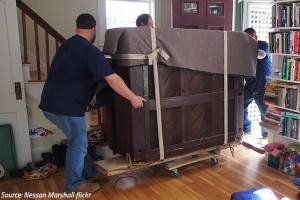
3. Keep liquids away from the piano
We often play the piano when guests come to our house. We may be having drinks and sometimes put a glass with a beverage on the piano. If this liquid accidentally spills on the keys and finds its way inside the piano, the consequences may be very unpleasant. If you have already ‘committed the crime’ and your champagne got on the keyboard, take a dry cloth and wipe it up from the keys. Be extremely careful not to press any key while removing the liquid. It is much worse if the liquid trickled down between the keys. Then, only a piano maintenance specialist can fix the problem. Trying to dismantle the keys in order to save the situation on your own will only aggravate it.
4. Keep the keyboard lid open occasionally
You should know that keeping the lid on your piano keyboard closed at all times is not recommended. It is true that by doing that you prevent dust and air particles from accumulating on the keyboard, which will eventually turn the keys sticky and hard to press. That said, if the lid always remains closed, it may cause mold to grow in the internals of your instrument. Humidity and darkness can make this process even more intense. The worst enemy of mold is sunlight, even indirect sunlight, and air currents. That is why piano owners should leave the keyboard uncovered at least twice a week. Choose the time when it is not dark yet for that. To prevent dust from gathering on the keys, pass a vacuum cleaner attachment over them once during your ‘open lid’ hours.
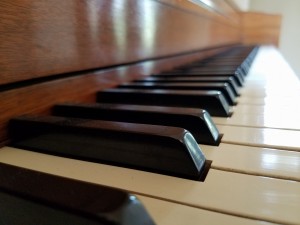
5. Don’t forget about the finish
As we have already said, any liquids should be kept away from the piano as far as possible. Don’t put your glasses or other containers with water or alcoholic beverages on the exterior surface of the piano. There is no need to clean a new piano too often. Do it just from time to time using a dry or a bit wet cloth (cotton suits the best for this purpose). If your piano has been serving you for many years, it deserves polishing, but only occasionally. You shouldn’t use cheap polishes, though.
6. Keep your piano serviced and tuned regularly by a professional piano tuner
Finally, your piano must be tuned and serviced on a regular basis. The first year after you bought the instrument is the most important in this respect. At least four tunings are required during this period. Later, you may have your piano tuned by a professional piano tuner twice a year. Don’t try to do the tuning yourself or fix anything on your own if something goes wrong inside the intricate mechanism of your instrument. Also, play your piano often. That way you will develop your skills as a musician and may spot any issues with your piano at an early stage.
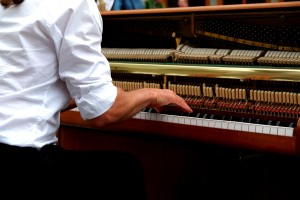
Your piano will keep giving you joy and pleasure for eternity if you do what piano maintenance experts recommend. Above all, that suggests creating a suitable environment around your instrument, having it serviced by a professional piano tuner, and protecting it from mechanical and other hazards.


